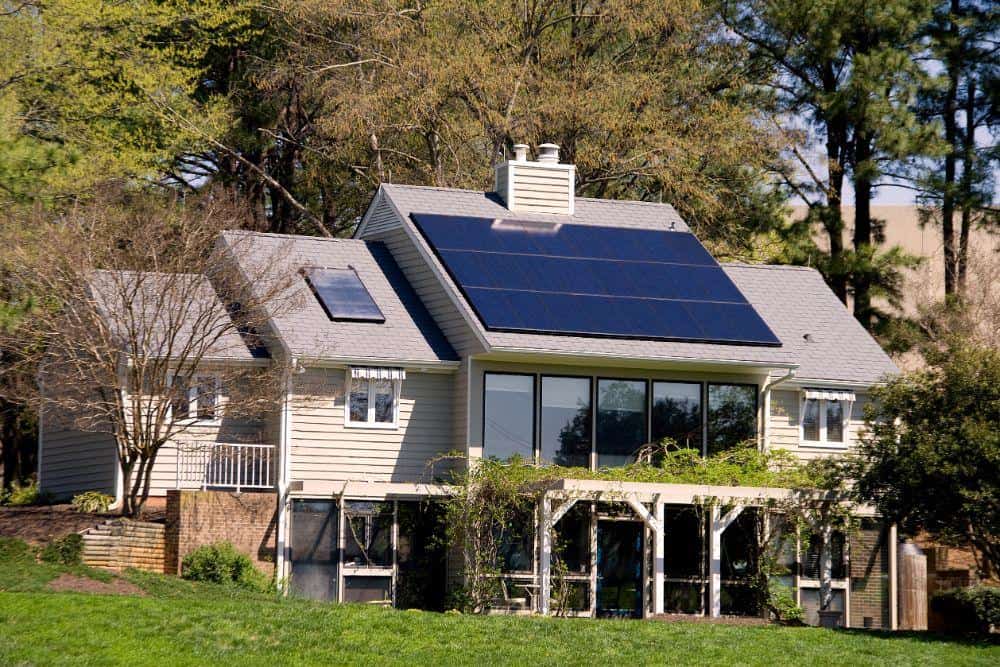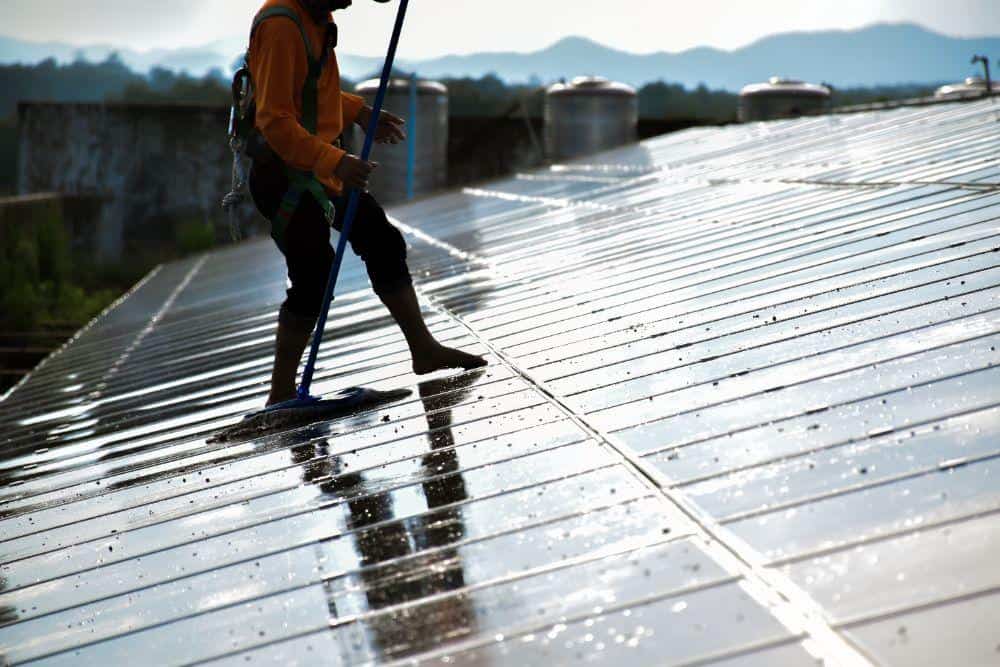Solar Panel Installation Isn’t the Only Business Opportunity in Solar
The solar energy industry is a thriving 50-state industry generating over $33 billion in the American economy’s private investment sector in recent years.
Astronomical annual growth rates stemming from falling prices, high market demand, tax breaks, and government initiatives can make solar panels a gold mine for business owners.
From providing residential and commercial installations and installation training to solar panel selling, financing, repair work, and more, the opportunities for running a successful solar panel business are extensive and carry a wide variety.
Here, we explore different profitable sectors of the solar energy industry and answer burning questions about solar panel business opportunities. The future of energy is green in more ways than one!
Solar Panel Basics
Solar panels harness the sun’s renewable energy by utilizing solar PV (photovoltaic) technology to generate an electrical current. Solar thermal energy is non-toxic and sustainable, distributing zero greenhouse gases.
Solar panels do not require direct sunlight to function effectively. The average solar panel user saves around 35 tons of carbon dioxide annually, with technological advancements promising to increase that number to 100 tons within the next few decades.
The United States houses the second-largest solar energy market globally, following China. With the US Department of Energy accelerating solar technology development and accessibility and solar panel prices dropping almost 70% since 2014, the industry is healthier than ever.
How Solar Panels Actually Work
Solar Panel Business Categories
Providing jobs for over 250,000 Americans, businesses in the solar universe are cashing in while bettering the economy and the planet. Here is a comprehensive breakdown of various solar panel business opportunities.
Commercial Installation
Non-profit, corporate, and government properties can use solar panels to generate power instead of relying on traditional electricity. Operating more sustainably is an additional benefit to the cost savings and tax breaks businesses and organizations receive in exchange for panel usage.
These entities can install rooftop solar systems. They can also install solar panel systems in the parking lots and on the grounds of their commercial properties. Businesses have more incentive than ever to buy solar panel systems because the federal solar energy investment tax credit percentage drops each year.
Another driving factor behind the booming commercial solar panel sector is the energy independence it gives businesses from unreliable power grids. Power outages from damaging weather and billing inconsistencies are examples of companies losing money and valuable time depending on a power grid.
On top of lowering dependence on fossil fuels to reduce its carbon footprint and minimizing energy costs over time, a company also benefits from a reputation standpoint when switching to a solar system.
Customers and clients now care more about corporate environmental responsibility than ever before. Recent surveys show that 66% of consumers consider sustainability before buying from a company, with 75% of millennials responding the same way.
With millennials overtaking other generations as the largest consumer demographic, businesses cannot ignore this expectation any longer.
And market reports indicate that they are not, with growth projections estimating the global market for solar panels to reach $328.16 billion by 2032. The US market for commercial solar panel systems is up 19% from pandemic-related setbacks.
Potential customers for commercial solar panel installation include hospitals, car dealerships, hotels, airports, restaurants, retail spaces, entertainment venues, and more.
Residential Installation
Similarly to commercial properties, residential properties benefit from cost savings and energy independence standpoints. Research proves that solar panels increase residential property value plus, residential solar energy systems work in all climates, and the market is constantly growing.

Solar Panels are Proven to Add to Property Value of Residential Homes
Starting this type of business requires a hefty initial investment and complicated, labor-intensive operations, but the payoff can be worth it.
Studying the residential sector reveals that the average installation project consists of 20 panels and costs consumers $16,800 with a 10% profit margin for the solar-installing company. Recent market reports value residential solar panels at $14.1 billion.
The most dominant regions in this market are California and Texas. The fastest-growing regions include Illinois, Colorado, and Florida. A major benefit of solar panel sales is that it is a remote-friendly industry, meaning you don’t have to reside in these regions to profit from them.
Every day homeowners now have solar panel technology within reach because of solar panel systems’ newfound affordability. With the increased accessibility, the potential customer base is bigger than ever.
RV Installation
RV’s can operate using solar panels in a much more energy-efficient way than typical generators. Solar power allows campers to function completely off the grid, reducing energy bills and eliminating campground fees.
Solar panels attach to RV roofs to convert sunshine into reliable, clean energy for someone’s home-on-wheels. The benefits lead to a demand that warrants RV solar panel installers charging $100-$150 per hour on average.
Smaller panel systems usually take a few hours to install, but more large-scale systems can take a minimum of 10-15 hours to install. If someone wants to travel on-site for an RV solar panel fitting, they can charge an additional fee. This type of solar business has the potential to be very lucrative.
Selling Solar Panels
Solar panel technology sales is an industry in itself. Solar sales professionals spend time meeting with potential customers, educating them on solar energy, the equipment, and energy bill savings, and matching them with the best panel system for their property.
Solar sales salaries can range from about $45,000 to $100,000 annually, depending on the region, the scale of the manufacturer, and the time investment into selling. California, New York, New Jersey, and Massachusetts are the highest-paying states for solar panel sales.

Sales of Solar Panels Can be a Very Lucrative Business Opportunity
Solar sales consultants can work door-to-door or remotely, cold-pitching potential buyers. It can be a fulfilling career for someone who wants to travel and enjoys meeting new people.
Solar sales professionals can register with solar contractor networks that the equipment suppliers often facilitate to begin a business selling panel systems.
Solar Panel Cleaning
Professional solar panel cleaning maintains the panels’ ability to absorb and convert sunlight to protect the customer’s investment. Rates depend on the panel system size and the market, but the average cost is $150-$300 for one job.
Some of the Details Involved in Setting up a Solar Panel Cleaning Business
Solar panels have a glass covering over the delicate machinery within the interior. The glass serves as a protective shield against the elements and buildup of dirt, grime, or dust. Over time, that gunk forms a film on the glass that obstructs the solar energy absorption process.
It doesn’t take a lot of expensive equipment to run this kind of business. Solar panel cleaners need ladders, hoses, cleaning solutions, sprayers, and cleaning poles with water feeding. Professional cleaners might want to invest in a portable water tank and need a utility van or truck.

Dust and Grime Must be Removed from Solar Panels to Keep the Panels at Peak Efficiency
Solar Panel Repairs
A potential franchise opportunity for profitable solar panel maintenance lies in repair work. Services can include equipment and electrical panel inspection, diagnostics, adjustments, restorations, replacement, animal abatement, and roof leak repairs in connection with the panel system.
Although solar panels are highly durable, they can incur damage from unforeseen events like power surges, debris, critters, and natural disasters. Product warranties do not cover these types of problems, meaning the solar energy business or homeowner needs to hire a repair technician.
Installation Training
Solar panel systems require skilled technicians for proper installation. Businesses can offer training courses, certifications, and education to installers either independently or through contracts with solar companies with employees needing a training program.
There is high demand for solar workforce development from training institutions and industry professionals to cultivate skills and understanding of solar installation and design.
Solar Panel Financing
Lenders can offer financing in the form of long-term loans, usually between 10-20 years, to homeowners who cannot afford to pay solar panel equipment and installation costs upfront. These loans generally fall under the home improvement lending category.
Lenders can provide secured or unsecured financing options with little or no money as a down payment. Solar loan financers generally charge an APR between 3-8.5% depending on the homeowner’s credit score.
Starting a Solar Panel Business
You can get a solar panel business up and running after establishing a solid, legitimate brand with a niche in the solar panel industry. Here are the steps for someone interested in solar panel business opportunities.
Determine a Niche
Solar panel businesses can fall into several categories, so it’s critical to identify which part of the solar energy field to take part in. A new solar business needs to decide on which solar products or services it will provide.
Solar professionals should research their regional markets to learn what areas have a saturation of companies offering services to set their businesses apart and meet different demands.
Determining a niche also means identifying a target market, whether it’s homeowners, retailers, manufacturers, non-profits, schools, airports, government agencies, or something else.
Secure Funding
The average solar panel startup spends $92,500 to get off the ground. Equipment inventory, insurance, licensing, vehicles, and marketing contribute to the initial expenses.
Some new business owners pay these costs out of pocket, some receive financing through small business loans or grants, and others seek out angel investors or crowdfund to cover the bill.
Name the Company
Solar panel businesses should have relevance to the industry, be easily recognizable and memorable, and ideally contain keywords for better SEO performance.
When choosing a company title, it’s wise to avoid including specific locations, products, or services to leave room for future expansion. Verify the brand name’s eligibility on government registries before securing a domain name and forming social media accounts.
Form a Business Plan
New businesses should have road maps to maintain focus on the company’s goals in the form of a comprehensive business plan.
The business plan should include an executive summary, business overview, products and services, market and competitor analysis, promotional strategies, management team breakdown, operations plan, financial plan, and appendix.
Register and Insure the Business
Each state has a process for registering a new business. It’s important to choose the right business structure and entity before registering for taxes.
Businesses need to determine which licenses and permits the state requires. Solar companies might need OSHA permits, patents, contractor licenses, and a range of other legal documents to comply.
Insurance types that can be helpful for solar panel businesses include professional or general liability, property, worker’s compensation, commercial auto, or equipment breakdown. Companies also have to open business bank accounts with their EINs for tracking income and expenses.
Essential Preparations
Before launching, a new business owner should set up software and systems for areas like accounting, marketing, and networking. The company needs website development, social media campaigns, and possibly affiliate marketing.
Form a Team
Depending on the type of solar panel business, the owner needs to build a team of professionals to operate successfully. Some potential employee roles include contractors, installers, managers, marketing heads, sales consultants, and customer support.





